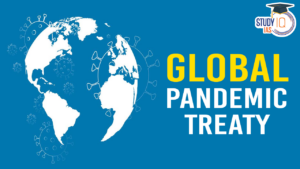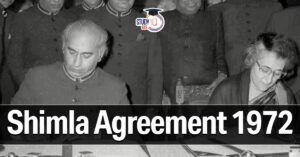Table of Contents
Pakistan’s UNSC Entry
- Pakistan will join the United Nations Security Council (UNSC) as a non-permanent member for a two-year term starting January 1, 2025, marking its eighth term in the Council.
- Composition of the UNSC for 2025-26:
- New Elected Members: Denmark, Greece, Pakistan, Panama, and Somalia will replace Ecuador, Japan, Malta, Mozambique and Switzerland.
- Current Non-Permanent Members: Algeria, Guyana, the Republic of Korea, Sierra Leone and Slovenia.
- With Pakistan’s entry, nearly half (5 out of 10) of the elected members of the UNSC will be from the Organisation of Islamic Cooperation (OIC).
| Organization of Islamic Cooperation (OIC) |
|
Pakistan’s Stated Priorities in UNSC
- Afghanistan Relations: Pakistan is expected to focus on Afghanistan, using its term to repair its relations with the Taliban. It will likely have the support of Russia and China in this regard.
- Palestinian Cause & Gaza: Pakistan, with the backing of OIC countries, is expected to advocate for a ceasefire in Gaza and further the Palestinian cause within the UNSC.
- Peacekeeping: As a significant contributor to UN peacekeeping missions, Pakistan will push for better peacekeeping efforts and reforms in the UNSC.
Challenges India Faces
- India-Pakistan Relations: Relations between India and Pakistan remain strained and India should prepare for anti-India initiatives from Pakistan during its UNSC term.
- Despite some backchannel communications, India and Pakistan do not have enhanced multilateral cooperation in the UN, particularly in the UNSC.
- Pakistan’s diplomatic strategy will likely include continued anti-India rhetoric and attempts to undermine India’s position, especially regarding issues like terrorism and Kashmir.
- Pakistan’s Diplomatic Approach:
- Terrorism and the UNSC 1267 Sanctions: Pakistan has historically tried to deflect international criticism of its role in terrorism by accusing India of terrorism against Pakistan.
- Pakistan has unsuccessfully attempted to list Indian nationals as terrorists under UNSC Resolution 1267.
- Conversely, India’s proposal to list Abdul Rehman Makki (Lashkar-e-Taiba deputy leader) under the sanctions regime was successfully accepted by the UNSC in 2021, with China agreeing to the listing.
Kashmir Issue & Use of Islamophobia
- Pakistan will likely continue to raise the issue of Jammu and Kashmir (J&K).
- Pakistan’s lobbying for UNSC consultations on Kashmir post-India’s abrogation of Article 370 was unsuccessful, with most P-5 countries (permanent members – USA, China, UK, France & Russia) showing no interest.
- Pakistan might present Kashmir as an ongoing international dispute in the UNSC, though the issue is largely considered bilateral.
- Islamophobia and Counter-Terrorism:
- Pakistan has tried to use Islamophobia as a justification for terrorism, seeking to incorporate it into UN counter-terrorism strategies.
- In 2021 and 2023, Pakistan, with OIC support, pushed for a reference to Islamophobia in the UN Global Counter-Terrorism Strategy, but India successfully blocked these efforts.
- In 2023, however, OIC-backed resolutions on Islamophobia were inserted into UNSC documents, with broader international backing, including China and Russia.
Indus Waters Treaty and Bilateral Issues:
- In 2024, Pakistan raised the issue of the Indus Waters Treaty in the UNSC, despite it being a bilateral issue between India and Pakistan which the UNSC did not address.
- This was seen as a misuse of the UNSC for domestic political purposes.
Pakistan’s Internal Challenges and Multilateralism:
- Pakistan’s internal political and economic struggles have hindered its ability to focus on constructive multilateralism. Despite this, it will continue to use the UNSC platform to pursue its national agenda.
- India, on the other hand, has focused on strengthening international peace and security during its 2021-2022 UNSC term, emphasizing UN peacekeeping and global challenges like climate change and SDGs.
Conclusion
Pakistan’s entry into the UNSC in 2025 will likely result in continued anti-India initiatives, especially around issues like terrorism, Kashmir, and Islamophobia. India should be prepared for these diplomatic challenges but can count on support from like-minded countries to counter these efforts.


 Global Pandemic Treaty, Objectives and K...
Global Pandemic Treaty, Objectives and K...
 Shimla Agreement 1972 to 2025: From Peac...
Shimla Agreement 1972 to 2025: From Peac...
 China's Salami Slicing Tactics
China's Salami Slicing Tactics





















